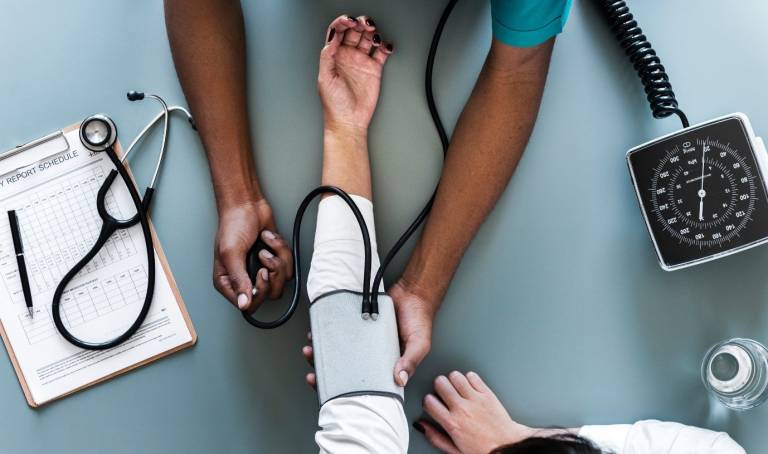Despite drop in emergency cancer diagnoses, little progress on inequalities by age and deprivation
20 November 2018
The large inequalities in risk of an emergency cancer diagnosis by age and deprivation have barely changed in the past decade, according to new research from UCL's Epidemiology of Cancer and Healthcare Outcomes (ECHO), in collaboration with Public Health England.
 The study, published today in the
Journal of Epidemiology and Community Health, analysed cancer registry data on
over 2 million patients diagnosed with one of 33 different cancers in 2006-13.
The study, published today in the
Journal of Epidemiology and Community Health, analysed cancer registry data on
over 2 million patients diagnosed with one of 33 different cancers in 2006-13.
Previous research has shown that emergency cancer diagnoses are associated with worse clinical and patient experience outcomes, and reductions in the proportion of cancers diagnosed an emergency (20% in 2013 compared to 24% in 2006) have been widely reported previously. The authors found that these reductions occurred at similar rates across between all age groups, and that the 'gap' between the youngest patients (who were at the lowest risk of an emergency diagnosis) and the oldest patients (at the highest risk), remained very similar in 2013 as it was in 2006, with similar results for deprivation. The authors also showed that if modest reductions in age and deprivation inequalities were achieved in the final year of the study, there would have been 3,000 and 11,000 fewer cancers diagnosed as an emergency, respectively.
There was more variation between patients diagnosed with different cancers (with a reduction for 32 of the 33 cancers studied). However, there were no noticeable patterns in regards to cancers with low/high 'baseline' risk, or those that had been targeted by public symptom awareness campaigns during the study period. The authors say the findings indicate that we have been making progress in terms of emergency cancer diagnoses for both easier- and harder- to-suspect cancers.
Lead author, Dr Annie Herbert (ECHO, UCL Department of Behavioural Science & Health) said "It is promising that there have been reductions in emergency cancer diagnoses in recent years; our findings show that there is still room for improvement. We showed that if even modest reductions in age and deprivation inequalities were achieved, we could have expected up to 11,000 fewer emergency cancer diagnoses. Given the poor outcomes associated with this particular pathway to diagnosis, the public health gains would be huge."
Photo by by rawpixel on Unsplash
 Close
Close



